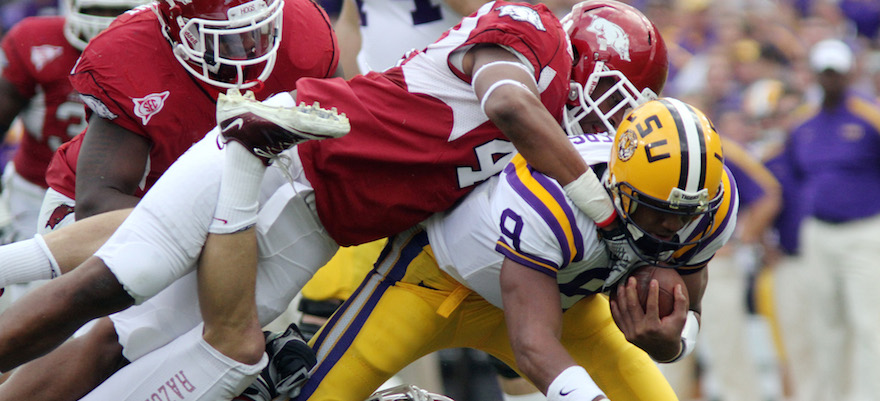“We’ve always done it that way.”
There is a certain stereotype in the minds of pastors and church leaders when they hear that phrase. The stereotype I am referring to is of an out-of-touch, die-hard, traditional, older member who can’t see the ridiculous nature of basing decisions mindlessly upon patterns of behavior in the past.
Well, if that’s the case, I’ve become that out-of-touch stereotypical non-change agent.
For the past 20-something years, the Arkansas Razorbacks (my favorite team) has played LSU the day after thanksgiving. I have so many great memories of traveling with special friends to watch that game over the years. As silly as it sounds, that game –on that day- has a special place in my heart.
The other day, I read in the newspaper that the game has been moved to another date and a new team has been placed on our schedule for Thanksgiving weekend. Before I could realize what was happening, the thought was echoing in my mind, “But we’ve always done it that way.”
My next thought was, “I can’t believe I just said that!”
I tried to process what happened inside of me. I wasn’t necessarily clinging to tradition. And I wasn’t so stuck in my ways that I thought changing was irreverent or wrong. No, what was happening inside of me was an acknowledgement that I had an emotional tie to something. It was actually a compliment to my friends and all of the great memories we had made over the years at that game.
I cringed as my mind took me back to the years I pastored. Every time I heard “We’ve always done it that way,” I respectfully listened, but behind my smiles and nods, my mind was grasping to the stereotype.
I interpreted the phrase as “Pastor, you better do a good sales job if you want me to change.” It was a call to attack and force change.
However, those uttering the phrase, I believe, were really saying something more like, “Pastor, this has meant a lot to me in the past. I just want you to know this will be a difficult change for me.”
What I always assumed was an attack was actually a complement. Those members were actually trusting me with their feelings! It was a sign that they honored me and wanted me to help them through the change –not go to war over it.
Oh how I wish I would have realized it years ago.
After all, if I could get so emotional over memories from a football game, just imagine how emotional someone could be over tearing down a building where their children were baptized or ending a program their late spouse helped begin. These people are not anti-progress, they are simply in touch with the gravity of the situation.
If you are a pastor or church leader, the next time you hear “we’ve never done it that way before:”
- Consider it an honor that they trust you with their feelings.
- Ask questions and show them that you respect and honor their emotions.
- Remember that they are complimenting the ministry.
- Speak highly of the ministry in the past.
- Love them before you attempt to lead them. Your ability to lead change is directly related to your genuine love for your members. They need to know they can trust your heart.
- Continue asking for their input as you proceed.
- If you decide change must take place, consider having a public recognition of the past ministry that is changing. Sometimes people just need to express themselves before they can move on.
- Remain sensitive to their feelings as you introduce change (it helps me to picture them as my mother or grandmother when thinking through issues).
